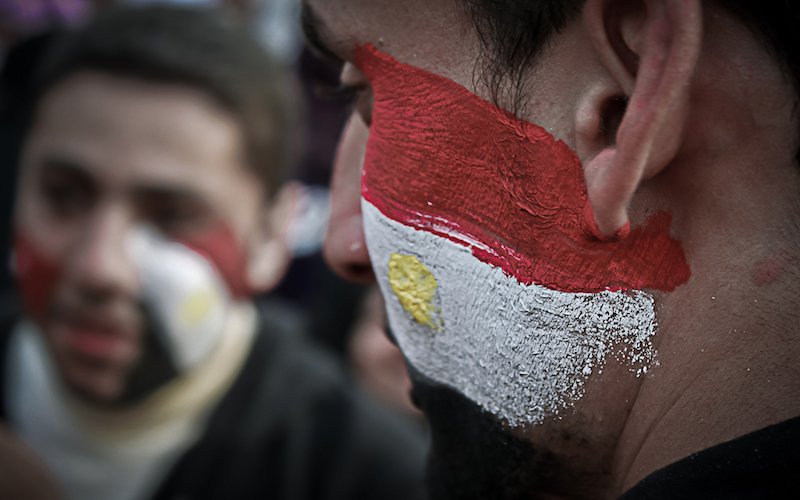
Egypt’s Youth Will Decide Country’s Future
Egypt is about to enter into a $12 billion deal with the International Monetary Fund (IMF) to assist in its financial and economic difficulties. Inflation was at 15.5% in August, the highest in years. Value-added Tax (VAT) at 13% has been introduced for the first time as of September and is scheduled to increase to 14% next year. Petrol subsidies will be cut completely over the next three years and petrol is set to rise to 65% of its actual cost during the fiscal year 2016/2017 (which ends 30th June 2016).
Basic commodities are getting more and more expensive and are only afforded by the general population because of heavy government subsidies. That in turn has weakened the country’s currency and national reserves which are as of July 2016, at only US $ 15.6 billion. There is a budget deficit of 12% of the gross domestic product (GDP). Should the country be able to secure US $ 5 – 6 billion in bilateral financing, the IMF will pay out the required loan over a three-year period. But even today, the country’s debt lies at nearly 100% of the GDP with a growth rate of around 4%.
In this economically challenging environment, one quarter of the 94 million population lives in poverty and the official unemployment rate is roughly 12.8%. 30% of the country’s youth, which make up 40% of the overall population, are unemployed and are finding it increasingly difficult to secure employment, especially those who have completed higher education. This group of the population knows that (economic) change needs to happen to improve the situation and they are becoming impatient.
Not only does the government try to alleviate the economic situation with subsidies but by involving the military in nearly all industries, leaving little room for private companies to be able to remain competitive and offer employment opportunities. The military, able to sell goods for lower prices due to no tax liabilities as well as low payroll costs and is, by law, not required to disclose its accounts, has increased its economic activities in the last three years under President al-Sisi. It can now even incorporate its own corporate entities and suppresses public unrest due to the dissatisfaction of the population. When mothers took to the streets to protest the rising price of baby milk in September this year, the military started importing and offering it at low prices which made it impossible for private companies to compete. The unrest, however, subsided.
Nevertheless, the lack of transparency in President al-Sisi’s economic policies fosters the rise of public dissatisfaction. Over the past three years, US $ 12.5 billion in loans have been secured from the Gulf States and yet it is unclear where the money was spent. Egyptians are increasingly impatient and are starting to voice their dissatisfaction with the situation and with the President who has failed to deliver on most of the promises he committed to when taking office in 2014.
Although demonstrations across the country have quieted down after an anti-protest law was passed in November 2013, they have picked up again in recent months despite the threat of fines and imprisonment. In April this year, the streets of Cairo saw a familiar sight when thousands of people called for the resignation of their President. The combination of difficult economic circumstances, mounting discontent and disillusioned youth will precipitate more demonstrations, especially should the Supreme Constitutional Court rule the protest law unconstitutional. Two lawsuits have been brought against some articles of the law which are deemed to encroach on the right of assembly and freedom of expression. Amnesty International described the law as “a serious setback that poses a grave threat to freedom of assembly and gives security forces a free rein to use excessive force, including lethal force, against demonstrators.” The ruling of the Court is scheduled for 3rd December and will play a decisive role in the future of the country. If the law is ruled unconstitutional, the people will feel more at ease to voice their unhappiness on the streets. Should the Court rule in favor of the law, the population might see it as yet another disregard of their rights and rise up in protest.
The country has a history of public protests dating back to 1954 when then-Major Gamal Abdel-Nasser instituted reforms to turn the country from a semi-democracy to a military dictatorship, Egyptians took to the streets to demand the reinstatement of the government, albeit to no avail. Protests have since been an integral part of the country’s culture which climaxed during the Arab Spring in 2011 when thousands protested on the streets and forced then-President Hosni Mubarak to step down.
Yet, most demands of the population have not been met to-date and they are living under a government that is one of the most repressive in the country’s history. In recent months, President al-Sisi has been criticized for some of the same reasons that forced Mubarak’s resignation: a faltering economy and police brutality. After having taken power in 2013 through a military coup and relieving the country’s first democratically elected President, Mohammed Morsi, al-Sisi has failed to legitimize his rule and is starting to feel the consequences. His government is increasingly attempting to cement his power and the population is uniting in a call for change, especially the youth who very well might be the decisive factor for Egypt’s future in the months to come.
Although al-Sisi declared 2016 the “Year of the Youth” and in February admitted that his government does not have good communication channels with the youth, no changes have been put in place. The youth feel that the government is hindering their future and encroaching on their freedom of expression. In the beginning of the year, several cafes and cultural centers, where young people met, were raided and closed down by the regime. After taking part in protests, many have been arrested. It is estimated that around 40,000 people are currently incarcerated for political reasons.
If the government does not offer the youth alternatives for a more promising future in a timely manner and the right to voice their concerns, there will be others who will fill that void.
TV personalities, politicians, intellectuals and journalists have already been increasingly critical of the regime in recent weeks, opening a channel for the population to air their grievances and paving the way for yet another revolution.
But many young people are tempted to make themselves heard through louder actions. Although the government is quick to counter any threats of extremist violence, these groups are appealing to the disaffected youth.
Followers of the Muslim Brotherhood (MB), which was declared a terrorist organization by the Egyptian government in December 2013, have toned down their demand for the reinstatement of ousted President Mohammed Morsi and are instead calling for the end of military rule thus making the group more appealing to potential members. However, the MB has been under pressure from the government and many members have fled the country. This has led to a rift in the group and the youth wing, under a man named Mohamed Kamal, employed more violent tactics and thus attracted young members who felt that stronger actions needed to be taken. Kamal was shot in a raid led by the Ministry of Interior on 3rd October under unclear circumstances. This will lead to further disarray within the MB, leaving yet again a void to be filled until a new direction is decided on or a new leader of the youth wing has emerged.
The anti-government view and ideology of the MB is shared by a relatively new extremist group called Hasam which could sweep in and offer lost members of the MB an even more violent alternative. The group first appeared on the radar of authorities in July this year when it killed a police officer. Since then, Hasam has claimed responsibility for a number of attacks in and around Cairo and attempted to assassinate the Egyptian assistant attorney general in September.
The MB, Hasam and other extremist groups such as the Islamic State franchises in adjacent Sinai and neighboring Libya, have recognized that many of the youth are looking for change and the groups will take advantage of that by offering alternatives.
If the government does not step in and take their grievances seriously whilst implementing economic reforms soon, the youth will look for a way to make themselves heard either as members of extremist groups or on the streets in protest which could lead to another revolution. As they make up such a high percentage of the population, their weight will make a considerable impact on the scale of Egypt’s future in the months to come.
